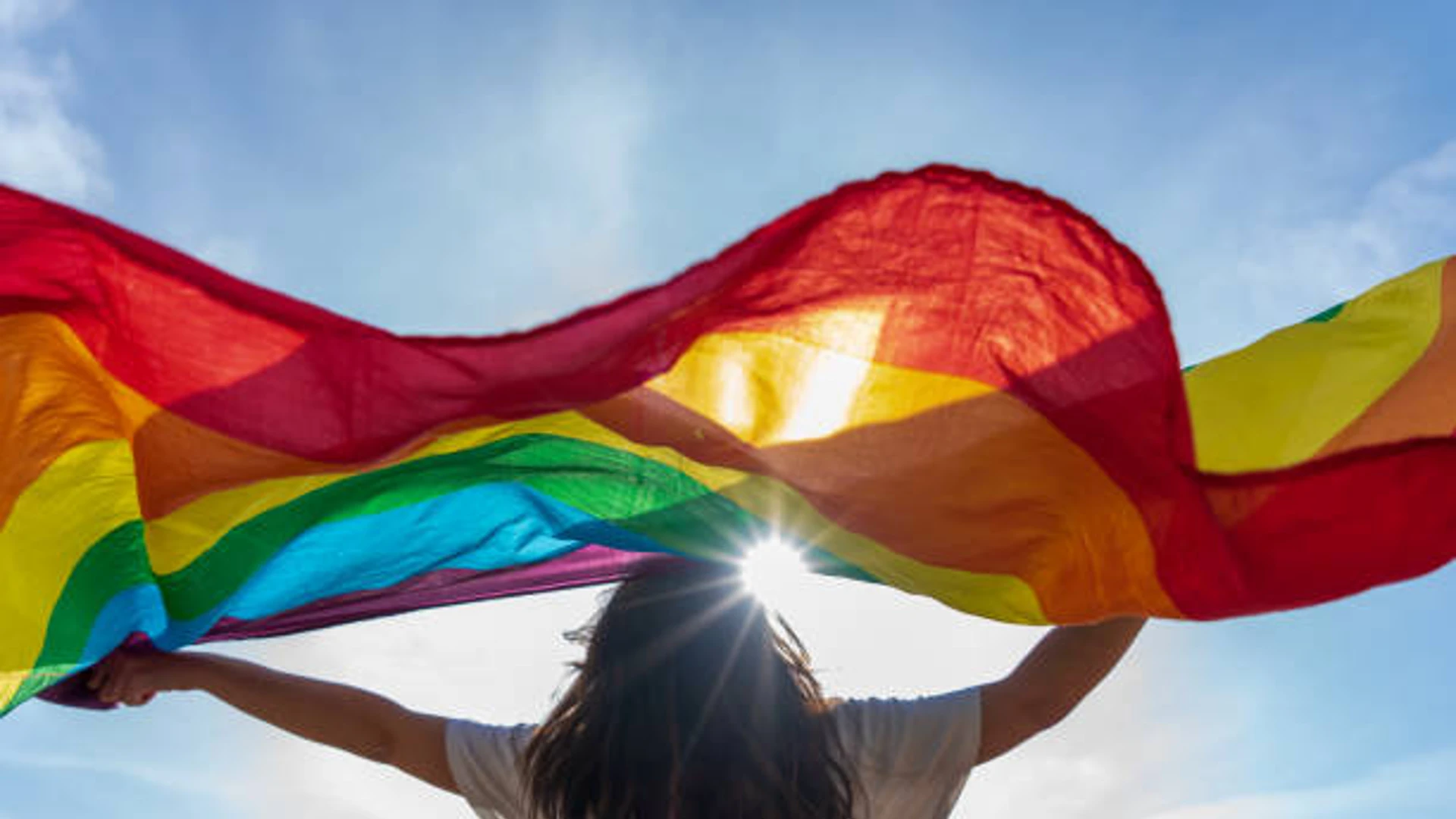The National Medical Commission (NMC), has written to all State Medical Councils, banning conversion therapy of LGBTQIA+ Community and calling it a “professional misconduct”.
- The NMC by following a Madras High Court directive, said that conversion therapy is wrong, under the Indian Medical Council (Professional Conduct, Etiquettes and Ethics) Regulations, 2002.
What is LGBTQIA+?
- The LGBTQIA+ (lesbian, gay, bisexual, transgender, queer, intersex, asexual or of any other orientation) are the people who don’t identify with cisgender (sex assigned at birth) heterosexual “ideals”.
- The ‘plus’ is used to signify all of the gender identities and sexual orientations that letters and words cannot yet fully describe.
- In India, the LGBTQIA+ community also includes a specific social group, a distinct community: the Hijras.
- They are culturally defined either as “neither men, nor women”, or as men who behave like a woman.
- At present they are referred to as the Third Gender.
- Supreme Court, on 6th September 2018, decriminalised section 377[1], which titled homosexual relations as “unnatural offences”.
What is Conversion Therapy and Associated Risk?
- Conversion or reparative therapy is an intervention aimed at changing the sexual orientation or gender identity of an individual with the use of either psychiatric treatment, drugs, exorcism (Evil Ceremonial Practices) and even violence, with the aim being to make the individual heterosexual (Attraction to Oppositre Sex).
- It includes efforts to change the core identity of youth whose gender identity is incongruent with their sex anatomy.
- Often, the therapy is offered by quacks with little expertise in dealing with the issue.
- According to the American Academy of Child and Adolescent Psychiatry (AACAP), the interventions under conversion therapy are provided under the false premise that homosexuality and diverse gender identities are pathological.
- Conversion therapy poses the risk of causing or exacerbating mental health conditions, like anxiety, stress and drug use which sometimes even lead to suicide.
What are the Directives of Madras High Court?
- The Madras High court ruling prohibited any attempt to medically “cure” or change the sexual orientation of LGBTQIA+ (lesbian, gay, bisexual, transgender, queer, intersex, asexual or of any other orientation) people.
- It urged the authorities to take action against professionals involving themselves in any form or method of conversion therapy.
- The court gave an order to the National Medical Commission directing it to “issue necessary official notification by enlisting ‘Conversion Therapy’ as a professional misconduct.”
- The court said the community should be provided with legal assistance by the District Legal Services Authority in coordination with law enforcement agencies.
- Asking agencies to follow the Transgender Persons (Protection of Rights) Rules, 2020, and the Transgender Persons (Protection of Rights) Act, 2019, in letter and spirit, the court said it was imperative to hold sensitization programmes for an all-out effort to understand the community and its needs.
What are the Rulings for Safeguarding LGBTQIA+?
- Naz Foundation vs. Govt. of NCT of Delhi (2009):
- Delhi High Court struck off section 377, legalising consensual homosexual activities between adults.
- Suresh Kumar Koushal Case (2013):
- SC overturned the previous judgment by Delhi High Court (2009) arguing that “plight of sexual minorities” could not be used as an argument for deciding constitutionality of law.
- Justice K.S. Puttaswamy vs. Union of India (2017):
- SC ruled that Fundamental Right to Privacy is intrinsic to life and liberty and thus, comes under Article 21 of the Indian constitution. It held that “sexual orientation is an essential attribute of privacy”.
- Navtej Singh Johar vs. Union Of India (2018):
- Dismissed the position taken by SC in Suresh Kumar Koushal case (2013) and decriminalised homosexuality.
- Shafin Jahan v. Asokan K.M. and others (2018):
- The Supreme Court observed that choice of a partner is a person’s fundamental right, and it can be a same-sex partner.
- Transgender Persons (Protection of Rights) Act, 2019:
- An Act to provide for protection of rights of transgender persons and their welfare and for matters connected therewith and incidental thereto.
- Same-sex Marriage:
- In February, 2021, the Central Government opposed same-sex marriage in Delhi High Court stating that a marriage in India can be recognised only if it is between a “biological man” and a “biological woman” capable of producing children.
Way Forward
- Schools and colleges must effect changes in curricula for a better understanding of the community.
- As late as 2018, medical books listed homosexuality and lesbianism as a “perversion”. People of a different sexual orientation or gender identity often narrate harrowing tales of bullying, discrimination, stigma and ostracisation.
- Gender-neutral restrooms should be compulsory in educational institutes and other places.
- Parents too need to be sensitised, because the first point of misunderstanding and abuse often begins at home, with teenagers being forced to opt for “conversion” therapies.
- The adults opting for sex reassignment surgeries need to get proper guidance like therapy pre and post operation, for an ordinary citizen, the cost too can be prohibitive.
